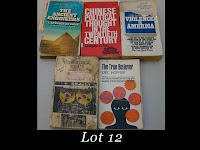Blogging the Caine Prize: An Introduction

Aaron Bady has come up with a great idea : since the Caine Prize for African Writing will be awarded in five weeks, and there are five short stories nominated, why not write about one story a week until the award? I'm going to throw myself into this, because I think the Caine Prize is important, and the exercise could be fun. I hope lots of other folks will join in. Here are the nominated stories, all available online as PDFs: NoViolet Bulawayo (Zimbabwe) ‘Hitting Budapest’ from ‘The Boston Review’ Vol 35, no. 6 - Nov/Dec 2010 [or direct link to the story at Boston Review ] Beatrice Lamwaka (Uganda) ‘Butterfly dreams’ from ‘Butterfly Dreams and Other New Short Stories from Uganda’ published by Critical, Cultural and Communications Press, Nottingham, 2010 Tim Keegan (South Africa) ‘What Molly Knew’ from ‘Bad Company’ published by Pan Macmillan SA, 2008 Lauri Kubuitsile (Botswana) ‘In the spirit of McPhineas Lata’ from ‘The Bed Book of Short Stories’ published by ...







